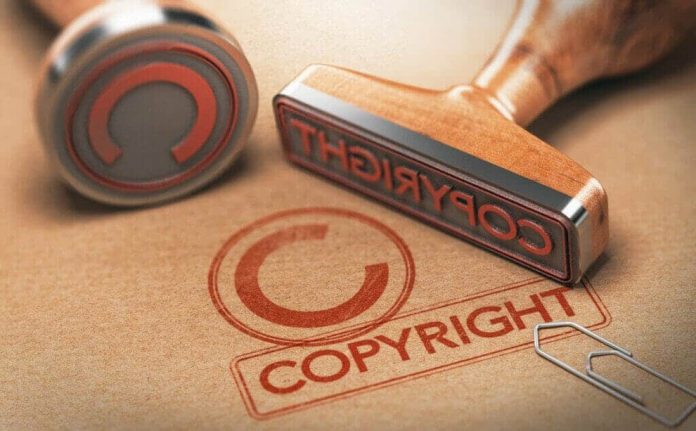This article has been written by Ajay Kumar, pursuing a Diploma in Intellectual Property, Media and Entertainment Laws from LawSikho. It has been edited by Aatima Bhatia (Associate, LawSikho) and Smriti Katiyar (Associate, LawSikho).
Table of Contents
Introduction
The Copyright Society is a legal body that protects or safeguards the interest of the owner in the product in which copyright subsists. Copyright societies give assurance to the creative author of the commercial management of their works. It can also be described as a registered collective administration society for the management and protection of copyright.
Authors of creative works give a publisher a license to publish the work on a royalty basis. This leads to infringement of work anywhere globally; therefore, it is challenging for the owner to prevent such infringements. To overcome such difficulty, owners of copyrighted works have formed committees to license their creations for display or communication to the public or issue copies of the work to the public. They are authorised to watch out for copyright infringement and take appropriate legal action against the infringer.
Copyright society in India
Governing law
Chapter VII of the Copyright Act, 1957 and Chapter XI of the Copyright Rules, 2013 enumerates provisions for the registration as well as the management of the Copyright Societies in the interest of Authors for whom it would be impractical or uneconomical to license the use of their work individually to all users or to collect the fee from them and also in the interest of the general public and specifically for the users of the right who may not be conveniently able to obtain licenses from individual authors or copyright owners. The copyright societies, therefore, help in enforcing copyright with benefits to both the parties mentioned above. It also aids copyright owners by increasing their revenues and the general public by providing them with a convenient destination to obtain licenses from multiple right holders.
As per Section 2(ffd) of the Copyright Act, 1957, “Copyright Society” means the society registered under Section 33(3).
Copyright Amendment Act, 2012
Prior to the 1994 amendment, the Act provided for the Performing Rights Societies, which carried on the business of granting licences for the performance in India of any work in which copyright subsisted. The 1994 amendment has extended the operation of the legal provisions to the business of issuing licences regarding all rights relating to any class of work in which copyright subsists under the Act.
The 2012 amendment inserted a new sub-section 3A in Section 33, which provides that registration provided to copyright society shall be for five years. The registration may be renewed from time to time. The Union Government may renew the registration after considering the report of the Copyright Registrar on the functioning of the Copyright Society under Section 36. Also, Section 33A, inserted by the 2012 amendment, made it mandatory for the copyright societies to publish their tariff scheme in the prescribed manner. The registration may be cancelled if the society has not complied with the provision of Section 33A of the Act.
Types of copyright societies in India
Indian Reprographic Rights Organisation (IRRO)
The Indian Reprographic Rights Organisation (IRRO) copyright society was established in 2000, and it primarily focuses on the authors and the publishers. The function of this society is to register and grant licenses concerning the literary work of authors and publishers. This society takes royalties from the users and then transfers the royalties to the authors and the publishers. IRRO has an international association with the International Federation of Reproduction Rights Organizations (IFRRO). It is the only copyright society of its kind existing in India.
Indian Performing Rights Society (IPRS)
The Indian Performing Rights Society (IPRS) was established in 1969. This society is concerned with the registration and licensing of copyrights of members belonging to the music industry. The members of the society mainly consist of songwriters, composers and publishers who are collectively called authors. The society collects the royalties on behalf of its members and protects the copyright of its members. After this, society deducts some amount from royalty as an administrative fee and transfers the remaining amount to the concerned members.
Phonographic Performance Limited India (PPL India)
The Phonographic Performance Limited India (PPL India) society was established in 1941, and it focuses on radio broadcasting and public performance of the songs. The song can be any national or international song, irrespective of its language or fame. The primary function of this society is that it issues licenses to the people who want to perform any song publicly in any social event, function, or show or other places like discos, restaurants, malls, etc.
Code of conduct of the copyright societies
Website
Every society should include the following in its website- Certificate of Registration of the Society, constitution or charter, article of association, memorandum of association, a list containing the members of the Governing councils and the officer in the society, name and address of the chairman, members of general bodies, the annual report along with the audited account, specific details of all the licenses and the format of the licenses, code of conduct and the contact details of the society members.
Member
Members of the Copyright Society should be treated fairly, courteously, honestly, fairly, and the dealings with members should be made transparent.
Functions of copyright society
The main functions of the Copyright Society are to issue licenses, collect fees and distribute the collected fees to the respective authors. The society would collect fees as per the scheme of tariffs and distribute the same to the authors after deducting a fee of not more than 15% of the total amount collected.
Section 34 of the Copyright Act, 1957 talks about the administration of copyright by copyright societies. As per this section, the copyright societies have the discretion to accept exclusive authorisation from authors and other owners of rights to administer any work by issuing licences or collecting licence fees, or both. It also provides that an author or other owner of rights has the right to withdraw such authorisation without prejudice to the rights of the Copyright Society under any contract.
Copyright societies allow entering into agreements with foreign societies to delegate the right to collect royalties from users in that foreign country. Provided that such country shall not discriminate between Indian authors and other authors concerning the terms of licensing or distribution of royalties.
Effect of 2012 amendment and inconsistency with certain provisions
The amendment of 2012 in the Copyright Act, 1957 added a new provision, Section 33 (3A), which talks about renewing a licence after a period of five years. This section requires the existing Copyright Society to be re-registered as a Copyright Society. However, the problem is that there has not been any punishment mentioned for the non-registration of these copyright societies.
Section 33 says that it is mandatory for any person or association of persons to get itself registered with the Central Government to carry on the business of issuing or granting licences in respect of the Act. This provision has an inconsistency with the provision of Section 30, which talks about the provision of granting licences. Now, the problem is if there is an existing provision that talks about licenses being granted by owners of copyright or their authorised agent, why do we need a provision in the Act that says that unless one is a copyright society, one cannot engage in the business of granting licenses.
The first proviso says that the owner of the copyright in his personal capacity shall continue to license the right to works. However, this provision does not make sense as we allow the copyright owner to continue to grant licences. Right before that provision, the legislature includes a provision that restricts such grant of rights unless one is a copyright society. Therefore, this proviso is redundant, and it also questions the application of Section 30 and Section 18 in a way because Section 18 says that once an assignment is in place and one becomes an owner of specific copyright in work, that individual is going to be acting in the capacity of the owner of the copyright for all those right which are granted to that individual. So, when the assignee of copyright becomes entitled to any right composed in the copyright, the assignee with respect to the rights so assigned shall be treated for purposes of this Act as the owner of the copyright. So, the assignee will also have the right to exercise Section 30 and grant licences to other people. So, if Section 33 is in place, the legislature also questions Section 18(2) along with Section 30. Also, we have no idea how and in what capacity these societies are currently functioning.
Case laws
In Leopold Cafe Stores v. Novex Communications Pvt. Ltd., the primary issue was whether Novex Communication Pvt. Ltd. is entitled to grant licenses on behalf of Copyright Owners in various works? The Hon’ble Bombay High Court observed that Every agent also “does business”, but it is the business of the agency, in which the agent is acting in such a way, that is, it indicates that it is acting on behalf of another who holds the copyright. This is the only way both Section 33 and Section 30 can be reconciled. Even on an agency enforcing Section 33, a complete ban would undoubtedly steer away from the simple language of Section 30 and replace the words “or it’s by a duly authorized agent” completely ineffective.
Finally, the Hon’ble Bombay High Court held that Novex was not permitted to engage in the business of issuing or granting a license in accordance with Section 33 of the Copyright Act. However, they may continue to issue licenses as authorized agents of the copyright owners under Section 30 of the Copyright Act 1957.
It appears that there is a conflict between the application of Sections 30 and 33 concerning the issue and grant of licence.
Conclusion
Copyright is indispensable in today’s world. The various copyright societies in India like IRRO, IPRS, and PPL India serve different purposes. The Copyright Society plays a vital role for authors and owners who have copyright on their work. Copyright Society helps such writers and owners to earn monetary gains in the field of business. It also helps writers and owners to connect with foreign societies. The Proviso added vide the 2012 amendment and the provisions conflicts with sections 30 and 18(2) need to be amended to serve the better purpose.
References
- https://indiankanoon.org/doc/44713127/
- https://www.mondaq.com/india/copyright/463106/copyright-society-under-the-copyright-act-1957
- http://www.legalservicesindia.com/article/417/Copyright-Societies.html
- https://blog.ipleaders.in/need-know-copyright-societies/
- https://zestip.com/the-concept-of-copyright-society-under-the-copyright-act-1957/
- https://en.wikisource.org/wiki/Indian_Copyright_Law
Students of Lawsikho courses regularly produce writing assignments and work on practical exercises as a part of their coursework and develop themselves in real-life practical skills.
LawSikho has created a telegram group for exchanging legal knowledge, referrals, and various opportunities. You can click on this link and join:
https://t.me/joinchat/J_0YrBa4IBSHdpuTfQO_sA
Follow us on Instagram and subscribe to our YouTube channel for more amazing legal content.
 Serato DJ Crack 2025Serato DJ PRO Crack
Serato DJ Crack 2025Serato DJ PRO Crack











 Allow notifications
Allow notifications


